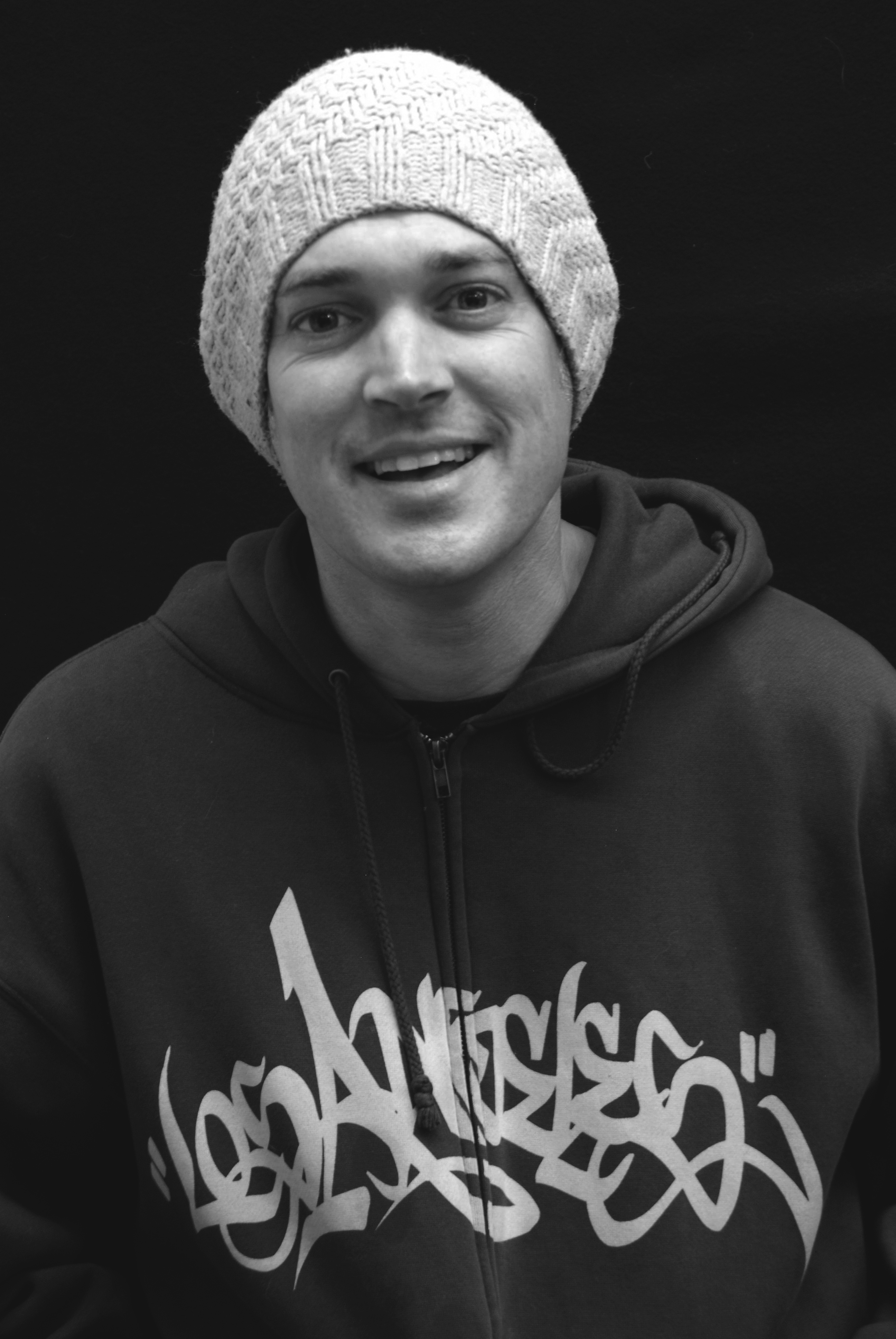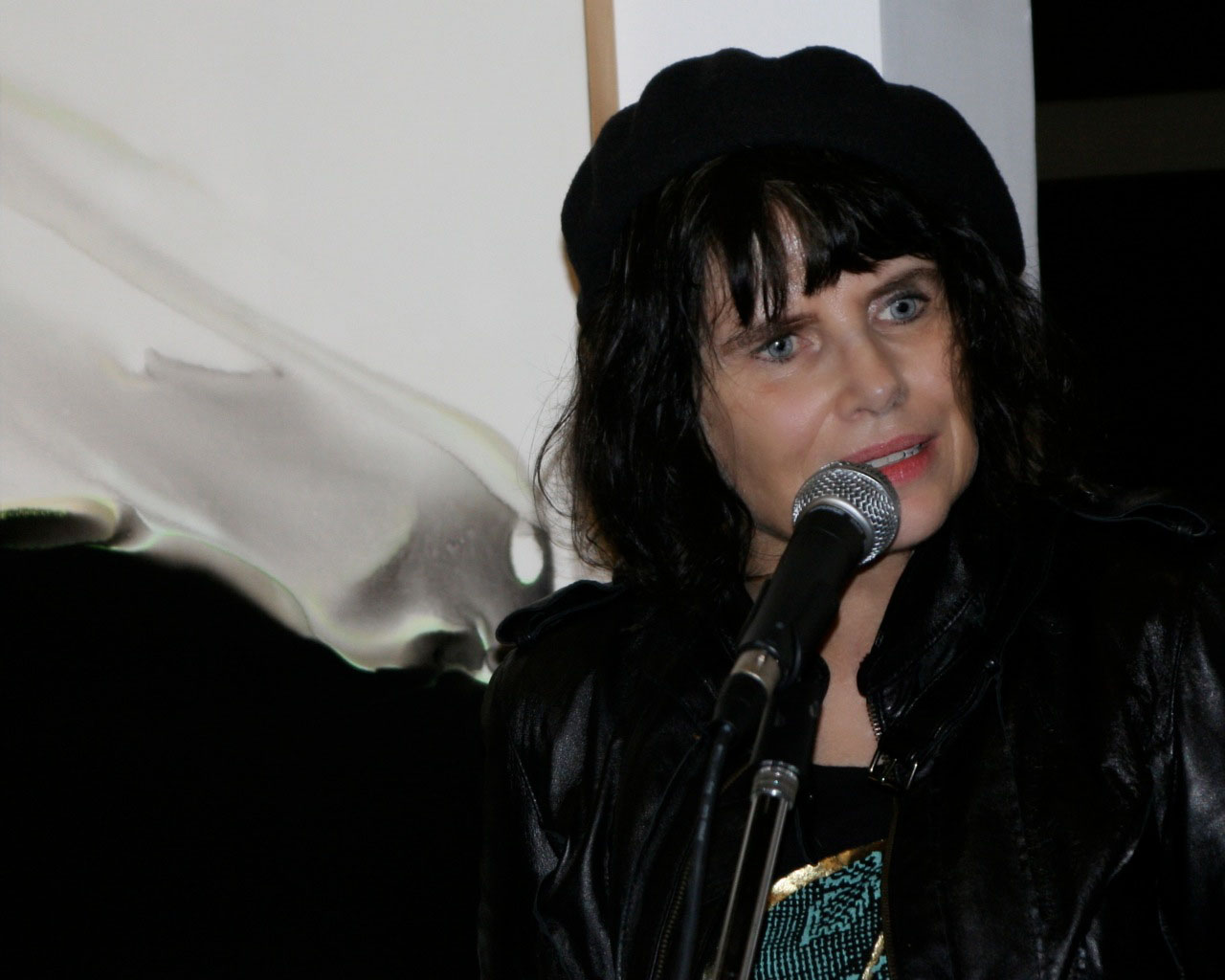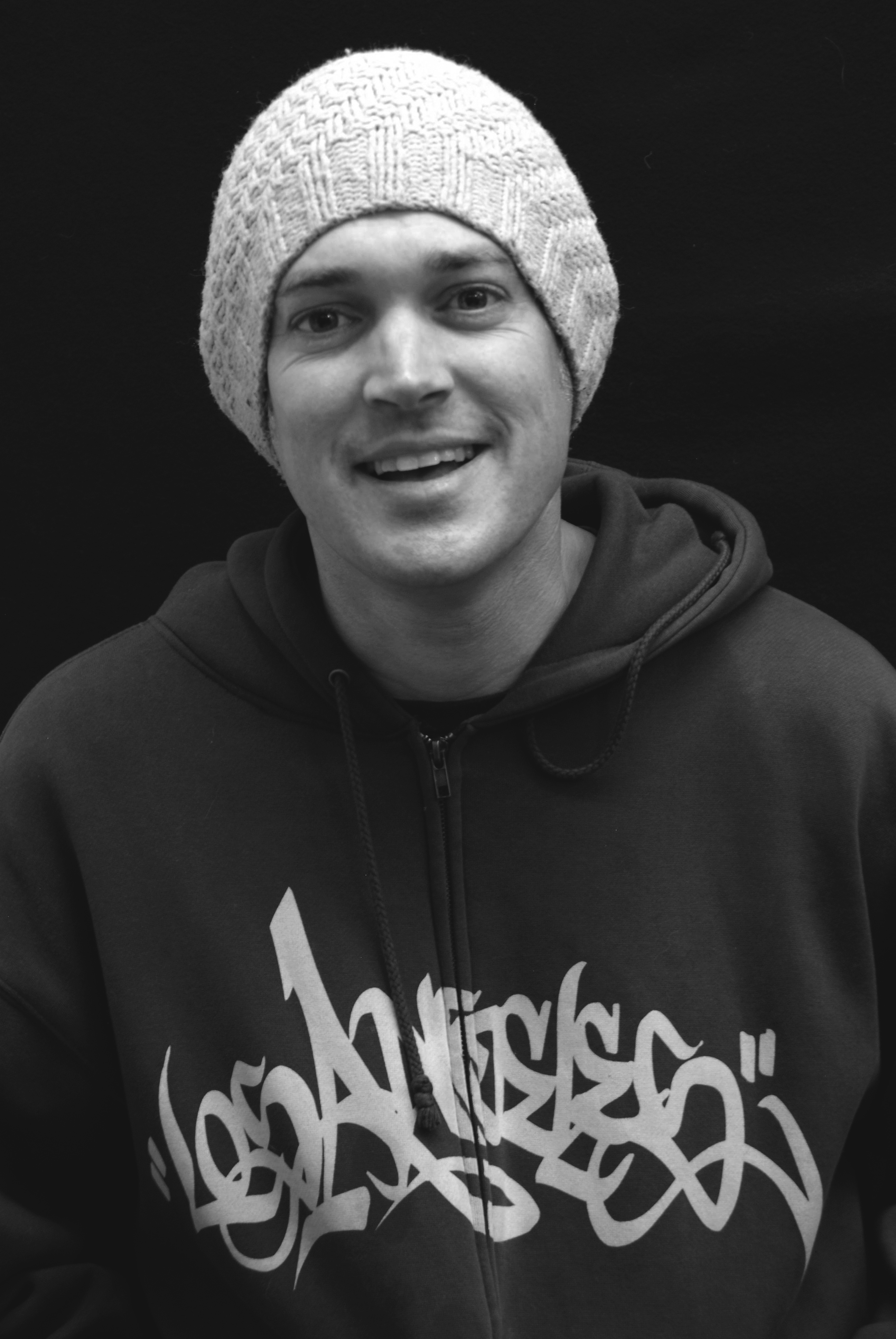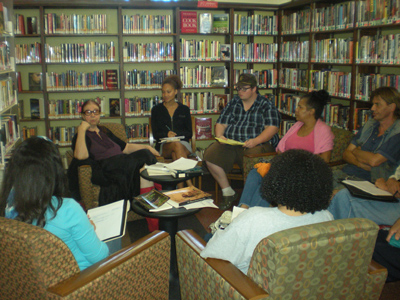Mike Sonksen and the Last Bookstore
P&W-supported spoken word artist Mike Sonksen, author of I am Alive in Los Angeles, blogs about The Last Bookstore.
I first became familiar with Rothenberg, poet/publisher of Big Bridge and author of more than twenty books, after picking up his book The Paris Journals. The book's format intrigued me immediately, a hybrid poetic/prose travel journey novella about his time in Paris. Rothenberg has edited collections of Phillip Whalen and David Meltzer as well as written several songs for film and television. Rothenberg read this past Sunday at The Last Bookstore.

The Last Bookstore has emerged as a mecca for literary events in Los Angeles and has featured David Meltzer, Sesshu Foster, Pam Ward, the L.A. Noir Poetry Festival, Writers Row, and the site-specific play titled A Record of Light. Located on Spring and Fifth in Downtown L.A.'s Old Bank District, the space has 10,000 square feet, comfortable seats, thousands of titles, and low prices. (They also have several crates of vinyl records.) The ambiance is undeniable in the store and the block itself.
Spring Street is often referred to as the Wall Street of the West; it's a goldmine for architectural historians with the largest collection of pre-World War II architecture in America. The large old banks were all built in classical architectural styles like Beaux-Arts, Art Deco, and Italian Renaissance Revival—elegantly poured concrete gems about a dozen floors each. The Last Bookstore is on the ground floor of a Beaux-Arts building designed by John Parkinson, the architect of Los Angeles's City Hall, the Memorial Coliseum, Bullocks Wilshire, and most of the banks on Spring Street. A plaque in his honor is located on the west sidewalk of Spring near the bookstore.
Literary legends, high school poets, and college students alike speak at the bookstore's events. Their philosophy: three generations on the same stage, all the ancestors on the same page.
Photo: Mike Sonksen. Credit: Chris Felver.
Major support for Readings/Workshops events in California is provided by The James Irvine Foundation. Additional support comes from the Friends of Poets & Writers.





 On especially felicitous occasions, you get both, the audience and the person who walks away changed. Take last year's
On especially felicitous occasions, you get both, the audience and the person who walks away changed. Take last year's  In 2005, Daaood's The Language of Saxophones was published by
In 2005, Daaood's The Language of Saxophones was published by  The writing workshops were a wonderful asset to the community and to the city. Writers came from all areas of the city to participate in these workshops. It was wonderful to hear and see the enthusiasm expressed by the participants. As I watched them listening to Lee’s instructions with concentrated attention, I could see that they could not wait for the time when they would be able to read their own work to the group. As each took his or her turn, the others listened and made suggestions for improvements. The ideas for improvement were discussed and rationale explained. Then Lee gently presented her own suggestions for improvements.
The writing workshops were a wonderful asset to the community and to the city. Writers came from all areas of the city to participate in these workshops. It was wonderful to hear and see the enthusiasm expressed by the participants. As I watched them listening to Lee’s instructions with concentrated attention, I could see that they could not wait for the time when they would be able to read their own work to the group. As each took his or her turn, the others listened and made suggestions for improvements. The ideas for improvement were discussed and rationale explained. Then Lee gently presented her own suggestions for improvements.